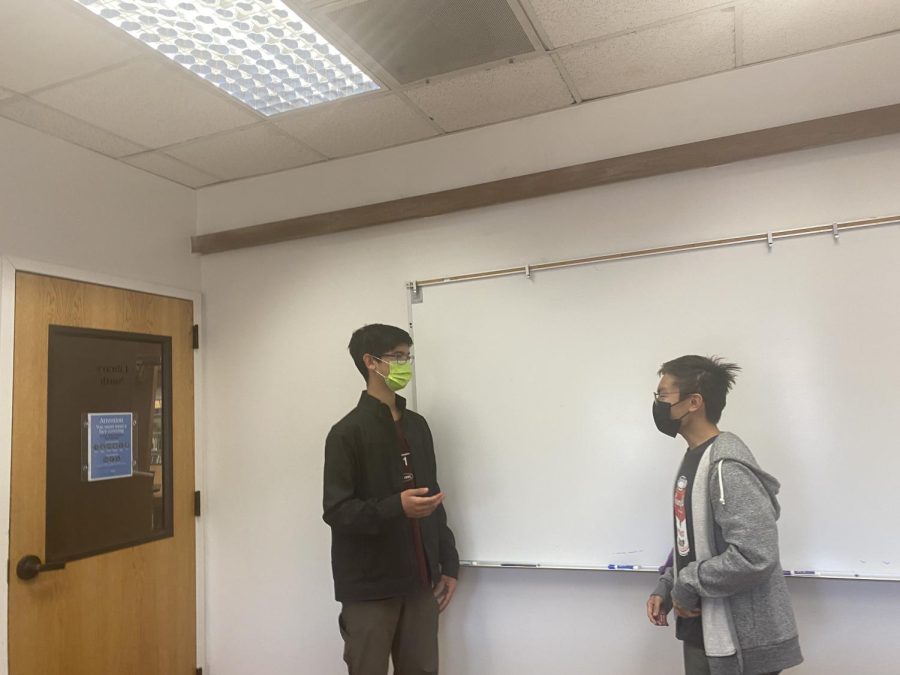On a typical day at Webb, it is common to see students in history classes attentively listening to their teachers talk about the Cold War, the American Revolution, or other related topics.
However, history is not just present in Webb classrooms. Pop culture is also rife with historical films, such as Dunkirk or 1917. History and pop culture is not a new combination, with plays about medieval history inspired by the likes of Shakespeare. Works like these have influenced how people view history.
Every year, movie studios produce multiple films based on historical figures and events, both famous and obscure, from 2012’s Lincoln to 2018’s Bohemian Rhapsody to 2021’s Oscar-nominated King Richard. Most audiences do not have the time to do heavy research on a historical figure and get much of their information about history from these films. However, most of these films are not made purely as an ardent historical piece, but as a piece of entertainment held together by cinematography., Therefore, it is important to examine these films, not only for historical accuracy but to understand how they impact the public’s perception of historical facts. Popular films can influence the public in different ways. Bambi inspired audiences to be anti-hunting, and it can be gathered that films do have some influence on how the public views history.
Films serve primarily to entertain and sometimes utilize historical aspects as a backdrop for a story that is more dramatic than the time was. Not every historical film is trying to be a depiction of history; some films, such as 2021’s The King’s Man, merely want to have an entertaining narrative with a historical touch. These films can be beneficial to one’s interest in history, as they offer an interesting setting. The film can also spark interest among those who enjoyed it to further investigate that time in history.
“Actually, there [are] a lot of movies now that I think about it,” Joseph Ferrari (‘22) said.
Joseph is particularly interested in the Cold War, and recounts which movies inspired him to learn about the Cold War, particularly movies such as The Hunt for Red October and War Games. From these films, he investigated their subject matter and had a deeper interest in Cold War history, leading him to take the Advanced Studies The Cold War Era class.
These films may not seek to tell the true stories of history, but rather have the goal of entertaining the audience. These films can serve as gateways to understanding time periods, such as WWI.
“I think that when I learn about history it is usually in a very objective way, but historical fiction makes you do the opposite.” Theresa Hu (‘24) said.
While not perfectly historical in their portrayals, these films can serve as visual representations of historical events that are left in history books. The film 1917 shows this well, as it follows the story of two soldiers in WWI delivering a message to an army commander. The film shows the brutality of war and the humanity of those who fought in it. This work entertains, but also has enough historical aspects to interest those who want to learn more, without the backing of some sort of legitimacy.
By contrast, historical biopics are naturally given credibility because of their perceived factual backing. This affirmation allows trust from the public, as people see these historical aspects to be factual.
Of course, no film will be completely accurate, but some films portray history in a way that is inaccurate in a detrimental way. While inaccuracy does not inherently harm society or the audience’s understanding of history, misrepresentations of historical figures can influence the perceptions of the audience. While it is not inherently harmful if audiences see uniforms, tactics, or expressions that are used, it becomes detrimental if the film portrays characters or times in a way that influences the public thought in a way that does not reflect the character of historical figures.
Portraying historical figures, such as the Founding Fathers, as perfectly good, can harm the general understanding of history and politics. While this depiction may not be as relevant for those who are more educated on those subjects, those who get a more favorable portrayal of the Founding Fathers may have their thoughts influenced by films. Furthermore, this portrayal also applies to more niche historical events, such as the 2017 film American Made, which connects airline pilot and drug smuggler Bobby Seal to CIA operations in South America, which are, as of the time of writing, are factually disputed.
“It is the main reason that things have to be further heightened to make it entertaining,” Conrad Poon (‘23) said. “They dumb down the details or cut some stuff.”
This change can give audiences a different perception of history and can be a detriment to their understanding of history by portraying historical figures as greater than common people, rather than human beings. However, some films do not make this mistake, particularly The Social Network.
The Social Network follows Mark Zuckerberg in his creation of Facebook and the legal battles following it. Instead of portraying Zuckerberg as a complete entrepreneuring hero, it shows his actions in their totality, which lends him a sort of humanity.
“I think that they did make his character […] flat., I think he’s a lot more complex than that, but I agree that he’s a selfish person,” Theresa said.
The Social Network is an overall well-crafted film and does the historical aspects justice. While not perfect in some of the portrayals of figures of Facebook’s history, it paints a portrait of Mark Zuckerberg as human, instead a larger-than-life figure with scenes that follow him through day-to-day activities, adding a more human touch. It also portrays 2003 Harvard in an honest light, which heightens the audience’s understanding of the time. This portrayal does not sacrifice the film’s entertainment value, as performances by notable actors, well-composed shots, and a well-written screenplay hold the attention of the audience. It is far from perfect in terms of accuracy, with multiple changes in terms of the details of supporting characters. However, The Social Network portrays Zuckerberg in a more human light, which helps build the audience’s understanding of events in a way that still entertains.
While historical films do seek to entertain, it is important to remember that famous and lauded historical figures were human beings and had human flaws. It is important to not just look at historical films as representing history but also look deeper. A combination of historical authenticity and entertainment would create a perfect blend of a film. It would not seek to purely entertain and would be beneficial to the understanding of the history of the public.







![Many Webb students spend their free time in the library watching a popular TV show like Riverdale and Euphoria. “Based off what I’ve seen, like in Euphoria, because the actors are older, they don't showcase an actual high school life properly,” Sochika Ndibe (‘26) said. “Since [the actors] are older [and] playing a teenager, from a girl’s perspective, it is going to make you think you should look more developed at a young age.” The actor, who plays Veronica Lodge, was 22 years old at the time of filming.](https://webbcanyonchronicle.com/wp-content/uploads/2025/03/Antecol-Media-affects-how-society-functions-graphic-1200x900.png)


